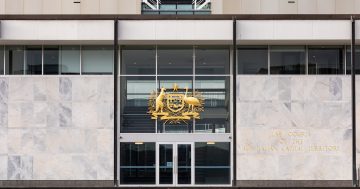
Justice Verity McWilliam says it is “difficult to understand” how Harjeet Singh reportedly thought his behaviour was legal. Photo: Michelle Kroll.
A Canberra man has been handed an almost two-year sentence for his involvement in a scheme to fraudulently obtain mobile phones while working as a delivery driver for Australia Post.
On 1 February 2024, Harjeet Singh pled guilty to four charges of obtaining property by deception for his involvement between January 2023 and June 2023.
In a recent sentencing in the ACT Supreme Court, Justice Verity McWilliam described the case against him as “overwhelmingly strong” in her reasons for the decision.
Singh avoided a stint in jail, however, with Justice McWilliam instead sentencing him to an intensive corrections order (ICO) of 1 year, 11 months and 28 days for his involvement.
He will also need to serve 100 hours of community service, which must be completed within 12 months.
Under the scheme, mobile phones are being ordered from the compromised accounts of Telstra and Vodafone customers, with the delivery addresses changed to an address in an area of operation of a particular Australia Post worker.
Singh became involved in January 2023 after an unknown man approached him.
A series of packages containing the phones were scheduled for delivery in Ngunnawal, an area where Singh worked, and he scanned them as if they were delivered.
In reality, however, he would take the phones to his home and store them until they could be collected on the weekends when he would be given $300 in cash.
The 57 consignments had a total combined value of $136,933, although Singh only received several thousand dollars over his involvement.
After being arrested on 1 June 2023, Singh spent seven days in custody before being released on bail.
Search warrants carried out on 1 June 2023 found 16 of the fraudulently ordered iPhones in Singh’s bedroom. Several Startrack delivery boxes and satchels, letters from Telstra Corporation and Telstra Postpaid sim cards were also found in his garage.
Justice McWilliam said there were “concerns” with Singh’s claim he was initially unaware his behaviour was illegal.
“It is difficult to understand how anyone could think that pretending to deliver mobile phones to people at fake addresses, keeping the merchandise and then handing the phones over to an unidentified person on the weekend for cash was in any way legitimate and lawful work,” she said.
Singh has since been fired from his job with Australia Post and now works as a casual delivery driver for another company.
While Justice McWilliam considered also fining Singh, she ultimately decided he was “not at all in any position to repay the debt”.
Singh was born in India and arrived in Australia in 2020 as a student.
His family endured financial hardship when he was young and continues to experience hardship, with Singh financially supporting family members in India.
“I accept that this offender’s lack of English and financial pressures led to his consequent vulnerability at the time that the opportunity to offend arose,” Justice McWilliam said.
“These were contributing factors here, and most significantly, may have fed into explaining why, once the offender realised what was occurring was illegal, he did not make better decisions, such as going to the police.”
He had also been suffering from depression since his arrest and time spent in custody, according to a psychologist’s report provided to the court.
Singh’s ICO will end in June 2026.






















Dr Bracketcreep…….. View